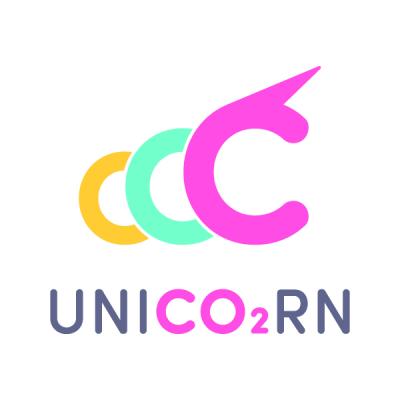
UNICO2RN
Flexible and Efficient Capture and Bioconversion of CO2 to Materials and Ingredients

Flexible and Efficient Capture and Bioconversion of CO2 to Materials and Ingredients
The EU aims for climate neutrality by 2050, with a target of a 55% emission reduction by 2030. While the energy sector can transition to renewables, chemicals and materials still depend on carbon. Their production is a major source of global emissions, making sustainable alternatives essential to meeting EU climate goals. CO2, as a renewable resource, offers a viable solution for replacing fossil-based feedstocks in industry.
UNICO2RN aims to show how biogenic CO2 can be converted into microbial proteins, biodegradable polyesters (PHAs), and amino acids using CO2 capture technology and fermentation. This process will improve efficiency, reduce energy consumption by up to 80%, and cut greenhouse gas emissions by 75% when fossil fuels are substituted in these processes.
UNICO2RN will help advance the EU's sustainability goals by providing scalable, bio-based alternatives to fossil-derived materials, contributing to a cleaner and more sustainable future.